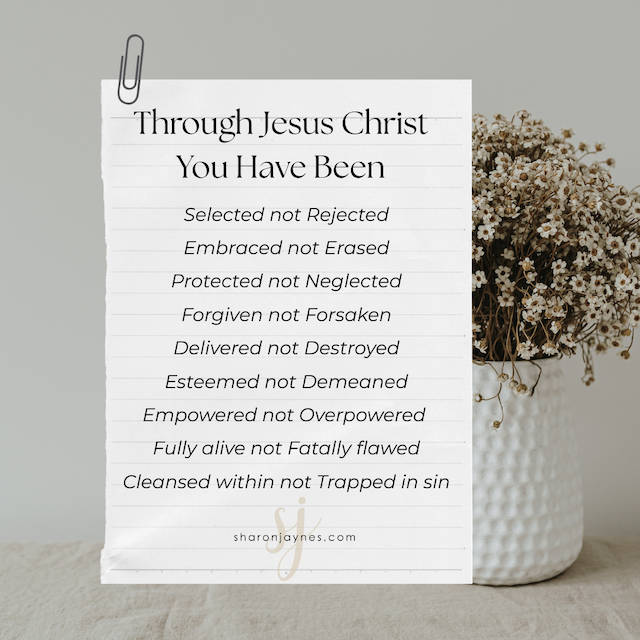30th Sunday in Ordinary Time: Love and Do what you Like

St Augustine, in his homily on the First Epistle of John, remarked, “Love – and do what you like.”[1] St. Augustine’s tenet expresses the theme of today’s readings. Love is the very core of Christian life and indeed of all human living. To love is not just a command but more a way of life which is patterned to God’s way of life.
In the gospel today, once again, Jesus was tested by scholars and Pharisees. The question they put forward to Jesus is what is the greatest of commandments. This seemed to be a trivial question but we need to take note that the Torah (the Law which is the first five books of the Hebrew Bible – Old Testament) contains 613 laws that a faithful Jew should observe. Thus, the question of the scholar can be rephrased as: “We have so many laws. But of these laws, which is the most important?” Jesus response also seemed to reiterate the pretty obvious taking his answer from the ubiquitous Jewish prayer called the Shema (“Hear!”) which every faithful Jew recite every morning and night since ancient times. It is named after the first word of Deuteronomy 6:4-9, which begins, “Hear, O Israel: The Lord is our God, the Lord alone. Therefore, you shall love the Lord your God, with all your heart, and with all your soul, and with all your strength.” Jesus then goes beyond the question by quoting what he calls “the second”: “You shall love your neighbor as yourself,” which comes from another book of the Law, Leviticus 19:18.
There is more than meets the eye in this seemingly ordinary exchange between the Pharisees and Jesus. Jesus is trying to make three remarkable points in his response.
First, Jesus’ response was an indirect rebuke to the Pharisees and scholars of the law’s penchant for the minor details of the Jewish hundreds of laws. By reminding them about love as the most important commandment, Jesus is trying to say to them that you are so concerned about the letter of the law but many times you miss the ordinary yet most important law of all—love of God and neighbor. You recite the Shema everyday but in reality you do not practice it. Jesus, therefore, exposes the Pharisees’ narrow-minded and hypocritical adherence to the letter of the law.
Secondly, Jesus expanded the Shema—love of God into love of neighbor and self. To love God is to love our neighbor as ourselves and vice-versa. The love of God cannot be separated from the love of neighbor and self and vice-versa. This is best explained by St. John in his first letter when he said: “Those who say, “I love God,” and hate their brothers or sisters, are liars; for those who do not love a brother or sister whom they have seen, cannot love God whom they have not seen” (I John 4: 20).
Thirdly, Jesus’ response shows that love is much more than a commandment. To love God and our neighbor are not really commands. For true love is free and spontaneous. Jesus is saying that love is the whole new way of life which a covenant with God requires.
Today’s gospel touches on a lot about our everyday living of the faith. Many times we have so many hangups about so many unimportant details of the laws and commandments of the church that we forget the most important law—love. What happens is law trumps love. We tend to focus more on the law side of the faith rather than on the way of life of the faith which demands radical transformation of our lives.
To see faith more as an obligation and as a set of laws is convenient to many Catholics. Once we fulfilled the obligations and laws we go on with our lives thinking that we have fulfilled our faith. Faith as an obligation or set of commandments sees faith merely as an external and superficial act. It neither touches nor demands meaningful changes in our lives. But even if we have scrupulously followed every law there is, isn’t it that deep inside us we long for a more meaningful living of the faith. Deep in our heart we long for that true and meaningful relationship with God and others.
To be a Christian is not just an obligation or adhering to a set of laws. Essentially, to be a Christian is to live according to the life of God—a live of love. The creation story tells us that we are created in the image and likeness of God. We are created in the love of God which is the life of God. The commandment of love comes from nowhere else other than from God because God is love. When we say God is love, it does not only mean that God loves us but God within Godself is love. God has lived a life of love before loving us in the life amongst themselves in the divine trinity. Each of the person in the Trinity is so focused on the other that one person forgets everything about one’s self.
There is so much focus in recent years about the expression God is love to God loves me without condition. God loves me for whoever I am. This indeed truly reflects God’s love for each one of us. However, we will not fully comprehend the meaning of this expression if we only focus on God’s love for me but fail to appreciate the fact that God has first practiced and lived the love that God has for me. God is love is also an invitation for you and me to participate and live in God’s love from which all of us were created.
Love from the perspective of Trinitarian love goes way beyond the common notion of love as emotional and romantic love. Love is a commitment, an action, a way of life. This kind of love is illustrated for us by the First Reading from the book of Exodus which involves treating every single person especially the most abandoned and the least in society with deep respect, with justice, with compassion.
Thus says the LORD:
“You shall not molest or oppress an alien,
for you were once aliens yourselves in the land of Egypt.
You shall not wrong any widow or orphan…
“If you lend money to one of your poor neighbors among my people,
you shall not act like an extortioner toward him
by demanding interest from him.
If you take your neighbor’s cloak as a pledge,
you shall return it to him before sunset;
for this cloak of his is the only covering he has for his body.
What else has he to sleep in?
If he cries out to me, I will hear him; for I am compassionate.”
There is a line from the Preface VI for Sundays in Ordinary Time which says “For in you we live and move and have our being.” This is taken from the Book of Acts, where St. Paul quotes the Stoic philosopher, Epimenides in Act17: 28 when he says ‘In him we live and move and have our being.’ This line can be rephrased in the light of our readings for today as ‘in the love of God we live and move and have our being.’ In essence, we all come from God who is love and we become fully human and fully alive if we live and move daily in God’s love.
May God’s love be with you.
[1] St. Augustine, “Homily 7 on the First Epistle of John,” New Advent. Accessed 28/10/2017 at http://www.newadvent.org/fathers/170207.htm
I am passionate about the intersection between new media and technology. I continue to research and apply new media in theology and vice-versa. I am also a fan of Our Mother of Perpetual Help and her continuing relevance in today’s digital world.
View all posts by Baclaran Phenomenon





